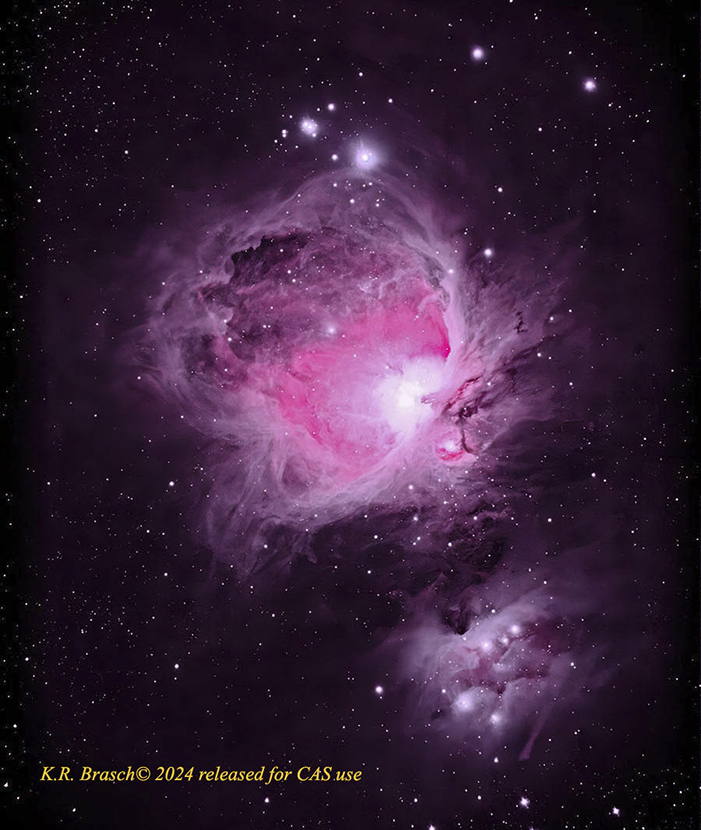Featured Photograph

Messier 42, the magnificent Orion Nebula
© 2024 Klaus Brasch
Messier 42, the magnificent Orion Nebula, a favorite object in any amateur telescope, is usually portrayed in vivid, high contrast colors. While that looks spectacular, the reality is that one of our closest stellar nursery’s true colors are likely much more subdued. I have attempted to depict it in hues one might expect as seen in a large aperture telescope, showing the light pink emission regions and the bluish reflection veils surrounding the nebula’s core.
DETAILS: Astro Physics AP 155 Starfire shooting at f/5.2, though an IDAS LPS-V4 filter and a spectrally modified Canon EOS 6D Mrk II. Total exposure: 8 minutes at ISO 4000.
Klaus Brasch
The featured photograph is any astronomical photograph provided by one of our members. If you are a member and have a photograph you would like to submit, please send the request along with the photograph and description to: info@coconinoastro.org.
Saturday, February 7, 2026
Presenter: Sevan Aydin
Title: “The latest Hubble Tension: A History of the Expansion of the Universe”
Description: Cosmology as a science began about a hundred years ago, around the same time we realized that some spiral nebulae are entirely different galaxies. When able to measure their distances, we discovered that the universe is expanding. Over the next hundred years, our understanding of cosmology evolved as the distance ladder improved. Recently, however, as precision improved enough, the present local rate of expansion as measured directly differs significantly from that expected by our cosmological models. This latest tension either gives rise to the need to explore better cosmological models, or reconsider the precision of the distance ladder, or both.
CAS Monthly Meetings and Astronomical Programs are held the
Saturday closest to the Full Moon at the Mars Hill Campus of
Lowell Observatory, Hendricks Center for Planetary Studies
Auditorium (6:45 pm - 8:00 pm)., unless otherwise noted followed
by refreshments, and informal discussion. Meetings are open and free
to the public.